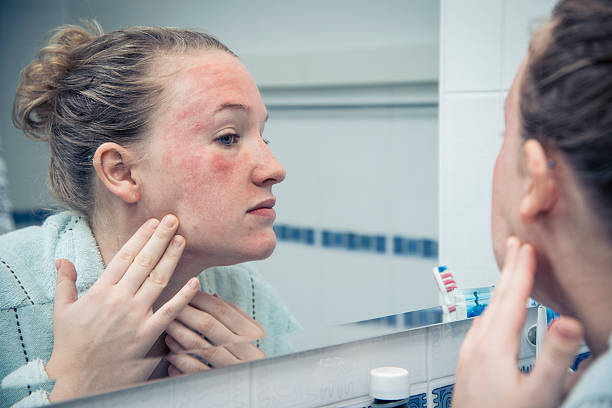For those with skin disorders like atopic skin conditions such as dermatitis (eczema), Psoriasis, and acne, signs like itching and tenderness could make a restful sleep seem impossible. It can get worse from there.
A new, large-scale study that was based on interviews with patients suffering from skin diseases in 20 countries has revealed that more than 40 % suffer from sleep disorders, which can have a significant effect on their physical performance and their work performance.
Presented on October 13 at the European Academy of Dermatology and Venereology (EADV) Congress 2023, the yet-to-be-published research found that more than 7,000 of the 17,000-plus respondents (about 42 percent) reported sleep difficulties due to their skin condition, according to a press release.
“Nearly half of the patients with skin diseases suffered from sleep disturbances due mainly to itching in 60 percent of cases and burning or tingling sensations in 17 percent of cases,” claims the lead researcher Charles Taieb, MD director of research at European Market Maintenance Assessment (a private firm that develops and implements patient-focused projects).
He continues, “The study showed that sleep disorders affected more the patients’ quality of living. In fact, nearly half (49 percent) of patients suffering from skin disorders experienced a decrease in productivity at work because of problems with sleep.”
Poor Sleep Means Coping With Fatigue During the Day
Dr. Taieb and his team have also observed that over 8 out of 10 participants experienced periods of drowsiness throughout the morning. Similar numbers reported feelings of fatigue when they first got up. Around 7 percent reported a constant yawning. The majority of people reported eye tingling. About three-quarters reported a decline in their concentration.
The signs of sleep disturbance were more prevalent in those who suffer from skin diseases compared to an overall study population of 33,000 without an underlying skin condition. A mere 20 percent of the group without disease reported lower productivity at work because of problems with sleep. The other indicators of insufficient rest and tiredness were between 10 and 20 percent less often reported in the nondisease category.
“The results suggest that we may be underestimating the potential impact on people’s quality of life from some of these skin conditions,” says Albert Chiou, MD, a director of dermatology and dermatology medicine at Stanford Health Care in California who was not involved in the study. “Clearly, symptoms are spilling over into their sleep and contributing to a high degree of sleep disturbance.”
7 Surprising Foods That Can Interfere With Your Sleep
Participants were averaged to have an age of around 40, with a higher than 42 percent of males and more than 57 % of females. The study was part of the ALL project, a vast effort to collect data regarding skin diseases and kinds on a global scale.
The majority of survey respondents (7,524) were acne-prone and acne, followed by 4,874 who had Atopic dermatitis-eczema and 2,237 who had Psoriasis. Nearly 1,700 suffer from chronic hand eczema. Nine hundred thirty-seven were suffering from rosacea, the remaining having skin conditions.
Stress Worsens Symptoms, Which Then Worsen Stress
Itchiness is identified as a cause of sleep disturbances, particularly for people suffering from atopic itchy dermatitis, as per Anthony Rossi, MD, a dermatologist who is affiliated at Memorial Sloan Kettering Cancer Center in New York City who did not participate in the latest study.
“Children and adults who have itch from skin disease often say that they wake scratching or are not able to have restful sleep,” says Dr. Rossi.
He suggests that the absence of sleep may increase stress, which could exacerbate symptoms and cause more nighttime scratching.
Treatments Can Help Break the Vicious Cycle
Treating the underlying issue could help stop the cycle. Chiou Dr. Chiou stresses the importance of working with a dermatologist in order to find effective treatments that reduce the severity of the condition and help to reduce or eliminate the symptoms.
Chiou was a participant in research that looked into the effects of the atopic dermatitis drug dupilumab (Dupixent) on sleep in more than 188 patients. The study, which was published at the end of August in 2023’s British Journal of Dermatology, found that the patients’ self-reported sleep quality improved significantly in the treatment group as compared to those receiving placebo. The improvement was correlated with improvement in the skin condition that caused it.
“I think this is just one example of how potentially controlling an underlying, symptomatic skin condition can directly improve the negative impact of the skin condition on sleep,” Chiou says. Chiou.

